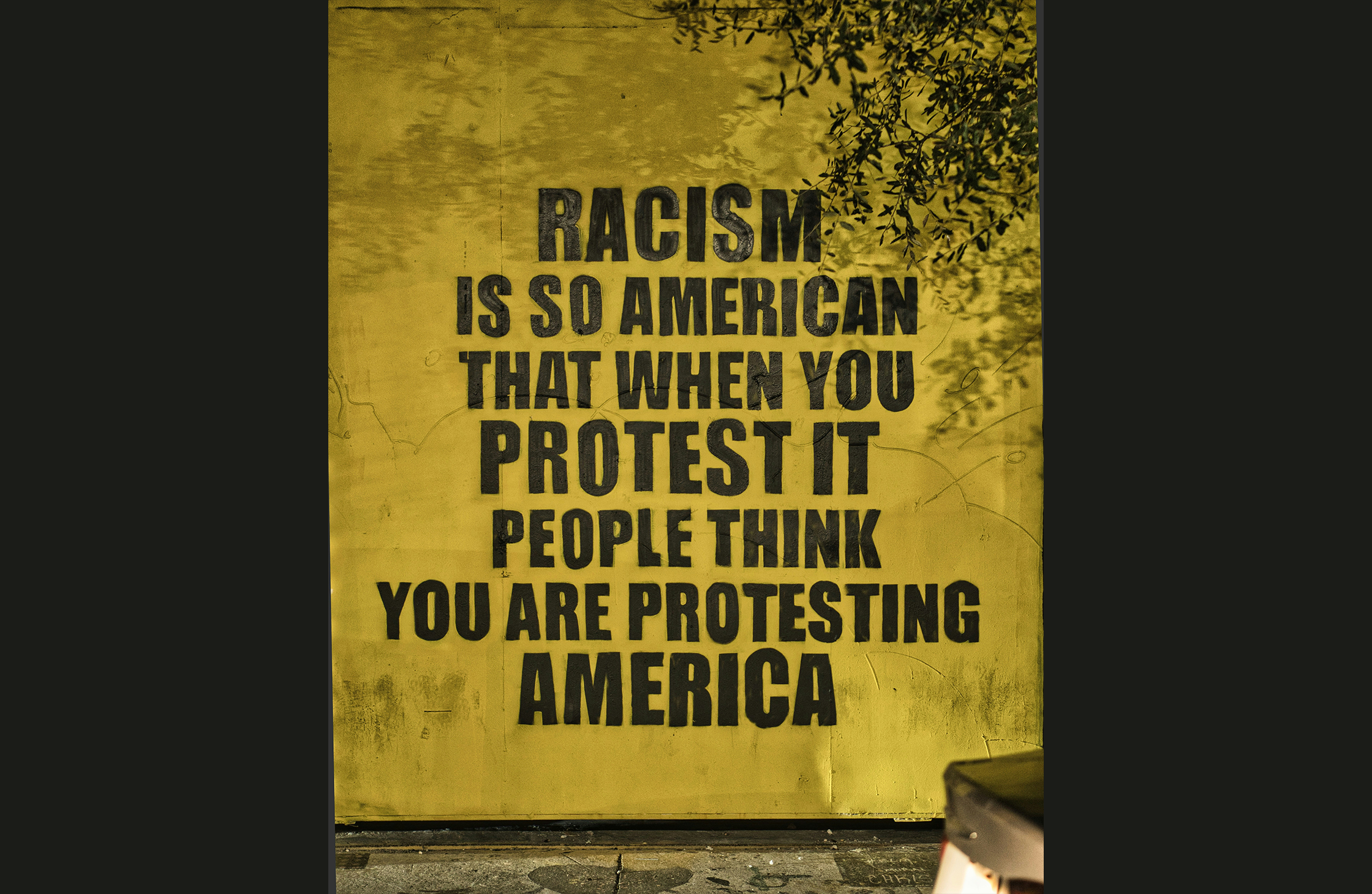Photo by Hrt+Soul Design on Unsplash
It is crucial for young Black individuals to understand how to address ignorance, derogatory remarks, and uncomfortable comments in every situation and environment they encounter. Empowering them with the knowledge and skills to respond effectively can help foster resilience and promote a sense of dignity, allowing them to navigate through challenges with confidence. By equipping them with the tools to confront such negativity, we can encourage a culture of respect and understanding, ultimately contributing to their personal growth and the betterment of the community as a whole.
Important note: You do not owe education or explanation to anyone. You always have the right to walk away from a conversation.
The Black Lives Matter (BLM) movement is important to me. How should I respond when someone says “All lives matter” in response to Black Lives Matter?
I would address this assertion by stating, “It appears that the core issue may not be fully recognized.” If one genuinely believes in the principle that all lives hold equal value, it should be evident that the lives of Black individuals, who have faced historical oppression and marginalization, are equally significant. The phrase “Black Lives Matter” does not imply that these lives are the only ones that matter; rather, it seeks to highlight the need for equity and to raise awareness regarding the systemic dehumanization, criminalization, and differential treatment that Black individuals have endured. The assertion that “All lives matter” serves to divert attention from this critical issue. It is essential to acknowledge that, for some, the lives of Black individuals are not valued, which underscores the necessity for equal justice for all.
How should I respond when someone says they have no problem with people flying the Confederate flag because it’s a symbol of history, not racism?
The Confederate flag, while often associated with a sense of southern pride, carries a significant and troubling legacy of racism for many individuals. Historically, it has been employed as a symbol of destruction and a representation of support for slavery by a nation that was ultimately defeated. This flag has become a traditional emblem of oppression directed towards Black individuals, serving to uphold the institution of slavery and reinforce the notion of racial superiority.
Its association with white supremacist groups such as the Ku Klux Klan further complicates its meaning and impact. In contrast, in Germany, the swastika is not publicly displayed, as many citizens feel a deep sense of shame regarding the atrocities linked to that symbol. This raises an important question: Should those who advocate for the Confederate flag take the time to acknowledge and comprehend its more sinister historical implications, thereby understanding the reasons behind its perception as a symbol of racism?
How should I respond to someone who says they aren’t racist, then repeats racial stereotypes?
I would communicate to that individual that their statement is incorrect. If someone claims to be free of racist beliefs, it raises the question of why they persist in employing racial stereotypes. I would inquire about the rationale behind their belief that it is acceptable to express such sentiments. Furthermore, I would take the opportunity to enlighten them on the fact that stereotypes are inherently linked to racism, and I would advocate for them to stop repeating them.
What should I say when someone makes a racist joke?
It is important to convey to that individual that their behavior reflects ignorance, insensitivity, and a tendency to normalize prejudiced ideologies. Although freedom of speech is a fundamental right, it is crucial to recognize that exercising this freedom does not exempt anyone from facing the repercussions of their words or actions, including inappropriate jokes or statements. Saying something is “just a joke” does not mean their words don’t have a negative impact.
Should I point it out when someone describes a Black person using the color of their skin? For example: “Those Black kids were so noisy.”
Yes! It is important to point it out. The relevance of color in this context is negligible. A person’s identity transcends their skin color; what truly matters is their humanity. When describing an individual, you should focus solely on the essence of being a person, rather than attributing characteristics based on their physical appearance.
The biggest thing for that person to consider is if they would describe someone as ‘white’ in the same context. Are they describing people by their race only because ‘white’ is the default?
What do I say when someone makes a racist comment about another person, like a coworker or another student?
This presents an excellent opportunity to enlighten an individual regarding a different culture and to inform them about the potential racist implications of certain comments. Remember that freedom of speech does not equate to immunity from repercussions. There are rules in place for protected classes, and racist expressions can result in disciplinary actions within a workplace or school.
How should I respond when someone makes a racist comment about me or calls me a racial slur?
Walk away. In such circumstances, the most prudent course of action is to disengage from the conversation. Engaging in a debate with someone who is intentionally being offensive is often unproductive and can lead to further conflict. If you feel like you are in danger, get to a populated area — somewhere with plenty of witnesses. You may want to call someone to help you. Stay safe.
It’s possible that the slur is unintentional; trust your intuition. Addressing instances of unintentional racism is crucial, particularly when it involves individuals who may not be aware of the implications of their language. For instance, when an older individual refers to a Black person as ‘colored’ or uses terms like ‘redskin’, it is important to intervene. By doing so, one can encourage a broader understanding of the impact of such language, prompting individuals to reflect on how their words can affect others and potentially foster feelings of resentment or hurt.
What should I say when someone says people should “go back to where they came from”?
The reality is that all individuals who are not Native American are, in fact, descendants of immigrants who have settled in this nation.
When a white person says people should “go back to where they came from”, what they are essentially saying is that a person of color shouldn’t live in the U.S. Call it out.
What should I say when a white person denies societal privilege, saying things such as, “I don’t see color,” or “I never owned slaves. I’m poor, so how has white privilege helped me?”
Concerning privilege, someone’s race plays an important role in their experience. It’s clear and understood that people in contemporary society in the U.S. don’t own slaves — saying that is just deflection. And life struggles are a part of the human condition for everyone, but that doesn’t mean privilege doesn’t exist.
You could say, “Have you ever been stopped by the police for no reason? Followed around the store? Do you get nervous when you see a cop car behind you? People of color experience things like this every day. These are things your skin color affords you the pleasure of not having to endure due to being white.”
The privilege exists, even for people who don’t realize these privileges directly contribute to their benefit. It stems from white ancestors that helped create this shared ideology of unequal treatment between dominant and subordinate racial groups. Solving racial inequality needs contribution from every person instead of ignoring the issue. Being ‘color blind’ doesn’t help anyone.
Examples of ways students can respond to racism at school:
- I embrace my identity and find your behavior unacceptable.
- Treat me with the same respect you expect from me.
- I’m not comfortable discussing that topic. (Remember, just because you are a person of color doesn’t mean you have to talk about race and racism!)
- Your words are offensive; I need some space.
- I find your choice of language off-putting.
- I’ve come to terms with who I am, and I hope you can learn to accept me, too.
- Just because you have your opinions and the right to express them doesn’t mean I have to agree or tolerate this behavior.
- Would you speak to your mother/father/sister/brother like this?
- Take a moment to reflect on yourself. Is this who you really are?
The most important thing is to stay safe, physically, emotionally, and mentally. Get help if you need it, and disengage from conversations and situations that are bad for you.
Anyla McDonald aspires to become a poet, short story writer, and essayist speaking about racism against Black people, current world problems, and hot topics. When she writes, she does it with purpose and passion. She feels destined to touch others with her words, and wants to be known as someone who takes a stand and impacts lives with her writing.
Anyla is a columnist for Tumbleweird and an intern at Taylored Living Magazine.


